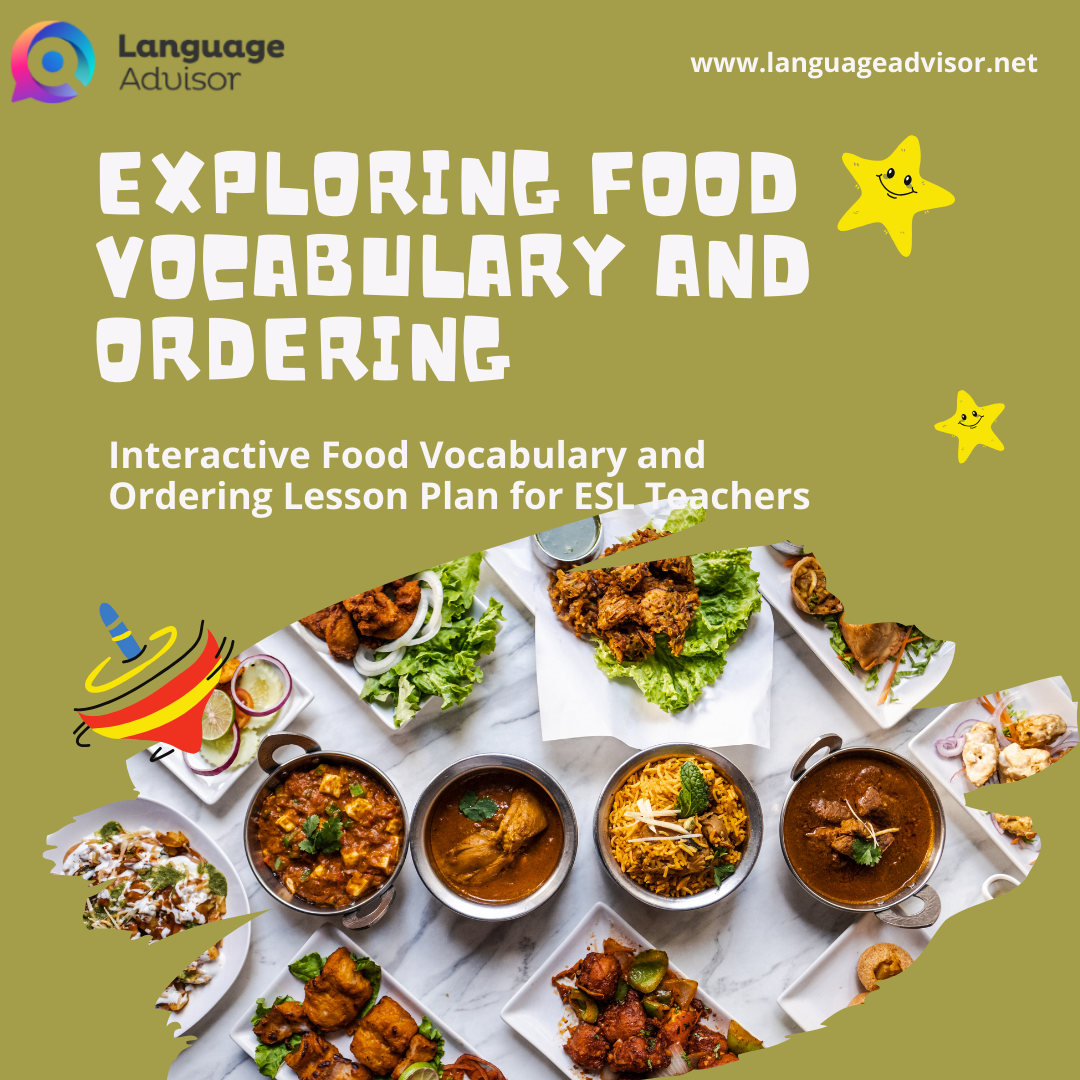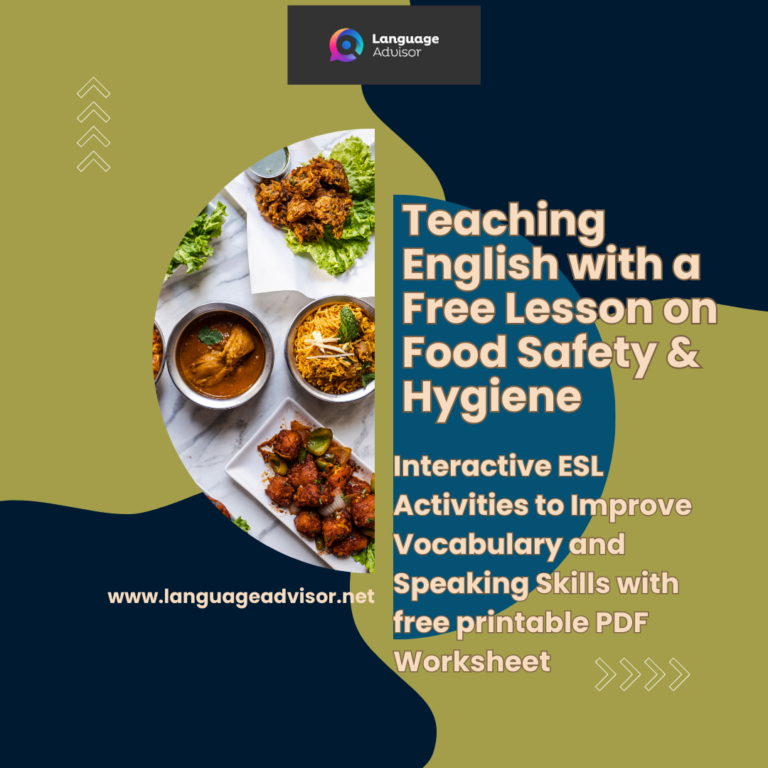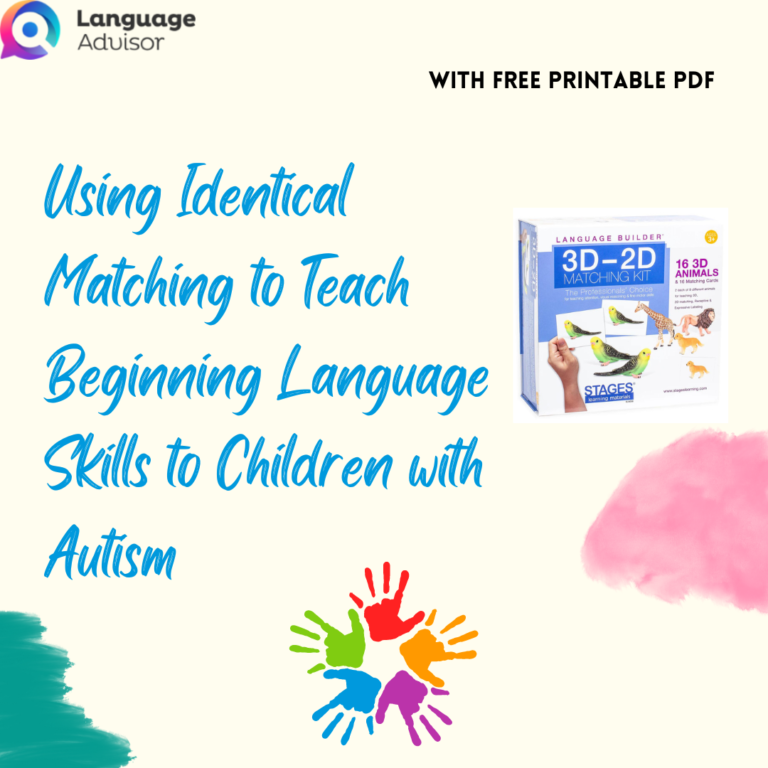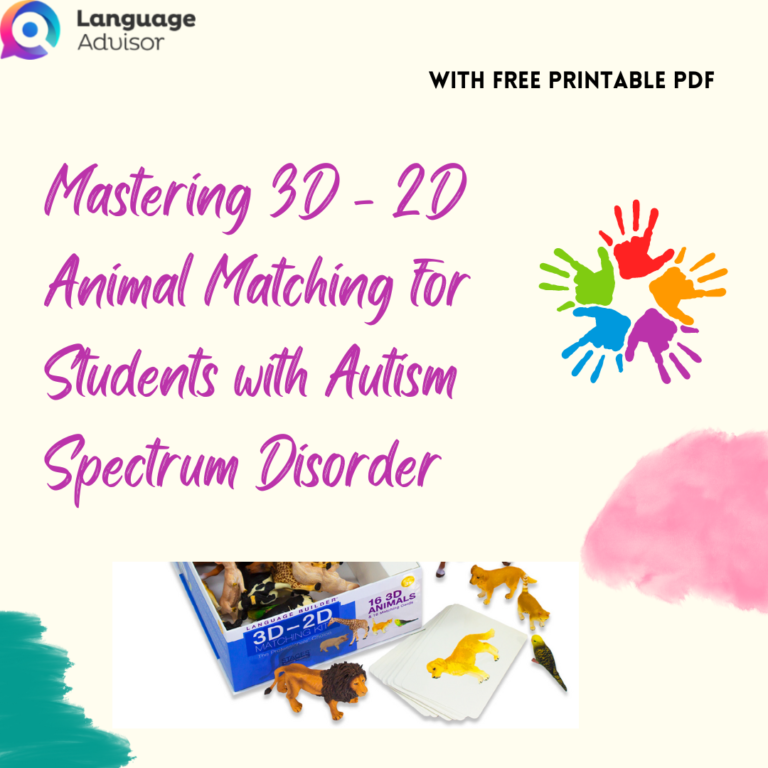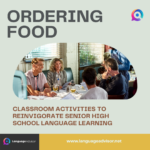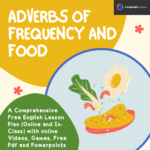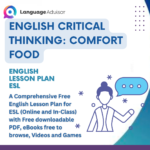Exploring Food Vocabulary and Ordering. Interactive Food Vocabulary and Ordering Lesson Plan for ESL Teachers
Exploring Food Vocabulary and Ordering

Exploring Food Vocabulary and Ordering
Teaching ESL students about food vocabulary and how to order food can be both fun and educational. Here’s a comprehensive lesson plan that includes a variety of interactive activities to keep your students engaged and help them grasp new concepts effectively.
Warmer: Pictionary Activity
- Split the class into two teams.
- Use your phone to show images of different foods (e.g., cake, pizza, vegetables).
- One member from each team comes to the front and draws the image while their team guesses.
- The first team to correctly guess the drawing wins a point.
Presentation
Introduce the following vocabulary words:
- sweet
- savoury
- spicy
- mild
- vegetarian
- extra
- without
- swap
- sauce
- meat
Class Discussion
- Write each vocabulary word on the board as a heading.
- Have students shout out examples for each word (e.g., sweet = cake, chocolate, fruit).
- Discuss the words and their meanings to ensure understanding.
Talking About Food
Read these sentences to the class and ask related questions to promote listening skills:
- “I prefer eating cakes to eating pizza.”
- “I have a sweet tooth.”
- “It is important to brush your teeth.”
- “I do not eat meat; I am a vegetarian.”
- “Thai food is very spicy.”
Ordering Food
Teach students how to use phrases when ordering food:
- I would like it with…
- extra ______
- to swap _______ for _______
- it without ________
- it with ________
- some sauce
- it spicy
- it mild
Activity
- Have students write down their favorite pizza and give specific details using the new vocabulary.
- Encourage them to share their preferences with a partner.
Cooler: Draw the Pizza
Let students draw their favorite pizza, including the toppings they described earlier.
Warmer: “Any” and “Some” Vocabulary Practice
Activity
- Write on the board: “speaking English is fun.”
- Split the class into two teams.
- Teams shout out words that can be made using the letters given (e.g., like, hike, pen).
- Representatives from each team write the words on the board. The team with the most words wins.
Presentation
Introduce new vocabulary:
- slice
- plate
- bowl
- glass
- cup
- scoop
- small
- medium
- large
- spoon
- fork
- knife
Practice
Explain the use of “some” and “any”:
- When asking questions, both “some” and “any” can be used.
- For positive answers, use “some.” For negative answers, use “any.”
Examples:
- Q: Would you like some ice cream? / Would you like any ice cream?
- A: Yes, I would like some ice cream. / No, I would not like any ice cream.
- Q: What size would you like?
- A: I would like a medium, please.
- Q: In Thailand, we use a spoon and a fork. What about you?
- A: In England, we use a knife and a fork.
Activity
- Shout out items of food/drink (e.g., cola, coffee, ice cream).
- Students must shout out the corresponding vocab word (e.g., a bowl of soup).
- Write correct answers on the board and practice asking for items using the correct vocab words.
Choose the Correct Word (any/some)
- I would like some/any chocolate.
- I would not like some/any chocolate.
- He does not have some/any chocolate.
- She would like to buy some/any chocolate.
- She would not like to buy some/any chocolate.
- They are not eating some/any chocolate tonight.
- They are not going to eat some/any chocolate tonight.
- Jason has some/any chocolate in his bag.
- Would you like some/any chocolate?
- Amy has some/any cake but she does not have some/any chocolate.
Go through the answers as a class.
Cooler: Pictionary
- Draw on the board (e.g., 3 scoops of ice cream, 2 glasses of cola).
- Students must shout out what you are drawing.

Kindy Class (Food and Drink)
Start with Opening Song
Game
- See what students already know about food and drink.
Flash Cards
- Practice vocabulary with Food Flashcards
Here are some flashcards on food
Memory Game
- Play Fast Food Memory Game twice.
Introduce Sentences
- “What do you like to eat?”
- “I like to eat pizza.”
Board Game
- Play Food and Drinks Vocabulary Board Game. Encourage students to use full sentences.
Notebook Activity
- Turn to page 36 of the Fingerprint 3 notebook.
- Ask kids to name some food items and write them on the board.
- Show pictures of food and have students name them.
Play Another Song
Conclusion
This lesson plan provides a comprehensive approach to teaching food vocabulary and ordering skills to ESL students. The interactive activities and practical exercises will ensure that students not only learn new words but also understand how to use them in real-life situations.
Teaching ESL students about food vocabulary and ordering food can be an engaging and enjoyable experience. By incorporating interactive activities like Pictionary, class discussions, and practical exercises, you can help students build their language skills in a fun and meaningful way.
This lesson plan ensures that students are not only learning new vocabulary but also applying it in real-world contexts.

Also check out these lesson plans


